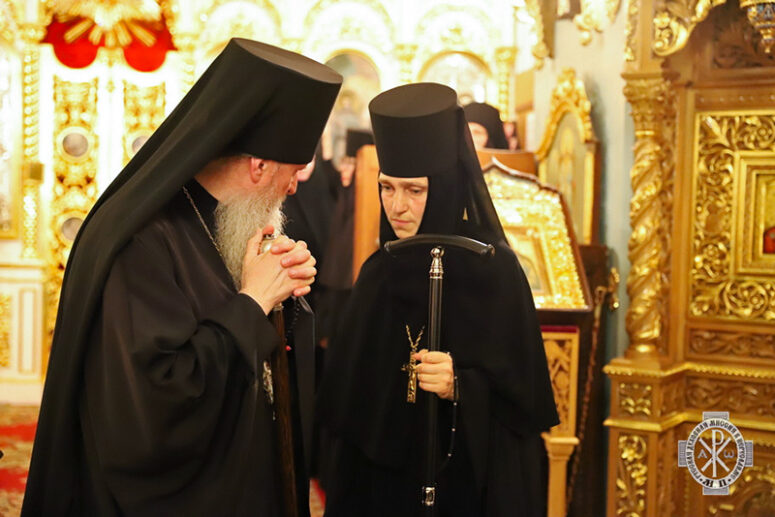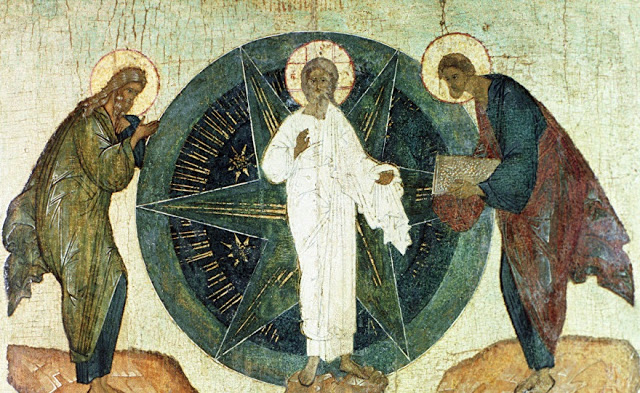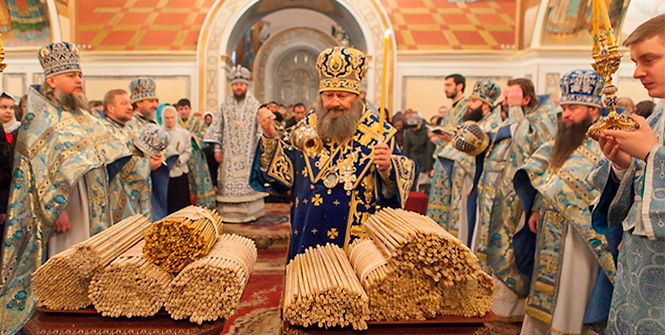
God gave us free will, and no one can be forced to follow the way of salvation against their wishes. Everyone is free to choose Between good and evil, righteousness and sin. Because we have the freedom of will, we please the Lord especially when we freely choose to do the His will, not our own. We have put together extracts from the writings of the Holy fathers and examples from their lives that shed light on the meaning of obedience and disobedience to our elders, spiritual fathers and God.
Obedience to our elders
In his epistle to the Hebrews (13:17), Apostle Paul writes, “Have confidence in your leaders and submit to their authority, because they keep watch over you as those who must give an account. Do this so that their work will be a joy, not a burden, for that would be of no benefit to you.”
Alexander Lopukhin, a known 19th-century Russian theologian offers the following interpretation of these words, “Absence of leadership is an evil and a cause of confusion; yet the disobedience of the subordinates is not a lesser evil, because it brings the same result. On the other hand, obedience from the subordinates places multiple obligations on the leaders. The subordinates have the duty of obedience, and so do the leaders who must be vigilant and alert. In his vigilance, the leader exposes himself to risks and punishments for the misdeeds of their subjects; they worry for their subordinates. Imagine how much worse his situation becomes when their subjects are lazy, disobedient or vain. The Apostle underlines this by commanding the subordinates to obey “so that their work will be a joy, not a burden, for that would be of no benefit to you.” When the subordinates disobey the directions of their elder, the latter should not seek revenge; but when our disobedience becomes his burden, that alone is our cause for sadness. For when the burdened leader is powerless to ease his predicament, he appeals to the Lord; and in this way, we receive a warning that by disobeying, we not only burden our elders but also invite punishment from the Lord and bring upon ourselves the pains of conscience that we would otherwise have avoided.

In the writings of the Holy Venerable Silouan of Mount Athos, we find the following example that reveals to us the greatness and glory of obedience that many might never suspect. “Obedience brings greatness before God. An obedient man is a follower of Christ Who became for us the model of obedience. An obedient heart lives in the love of God. From Him, he has the gift of inner peace, goodness and the love of others.
Obedience is not just a virtue of monks; it is essential for any person. Everywhere, people are looking for peace and joy, but few imagine that these gifts are the fruit of obedience. Without obedience, even ascetic deeds become nothing more than vanity.
By exercising obedience, we take the easiest and fastest route to acquiring the great grace of the Lord, where the obstinate and the strong-willed will engage themselves into many deeds of strict asceticism and scholarship but will satisfy themselves only with the crumbs of the great feast of His glory, despite their quick minds and learnedness….”
Saint Paisios of the Holy Mount gave an example of a priest who had enough simplicity to give up his original intent and show obedience, despite his impressive spiritual accomplishments and God’s gift of miracle-working.
This simple clergyman lived in Jordan and healed many sick people and animals through his prayers. Before serving the Divine Liturgy, he had the custom of having some hot drink with a piece of dried bread, and not having anything to eat for the rest of the day. Rumour about this priest reached the Patriarch, and he summoned him to his quarters. The priest came as a common visitor and waited humbly at the reception to be called in. Outside, it was very hot, and the shutters on the windows were closed. A fine ray of sun came in through a small crack in the shutters. Taking the ray for a clothesline, the priest took off his outer garment to hang it. The people at the reception were flabbergasted. One of them walked into the Patriarch’s chambers and said, “The priest who has breakfast before the liturgy tried to hang his outer garment on a ray of sun!” The Patriarch called him in and asked him about his life, – How often he was serving liturgy, And how he was preparing for it. The priest answered, “First, I read the morning rule, then make bows, afterwards, I make tea, have a light meal and go off to serve the liturgy.” “Why do you eat before liturgy,” wondered the Patriarch. – “If I have something before liturgy, then Christ’s blood and body will come on top of my meal after Communion. But if I eat after the liturgy, His blood and body will be under it.” He ate before Liturgy, but he had a good intention. The Patriarch listened and pointed out his mistake. “But that is incorrect. First, take in the Holy Gifts, then have your meal.” The priest bowed, accepted his instruction with humility and obeyed the Patriarch’s word. That simple priest showed no obstinacy; he did not put his opinion above that of others simply because he had the gift of wonderworking from the Lord. With his honest obedience to his elders, he multiplied his rewards from the Lord.
Certainly, the advice on obedience applies only to things that do not conflict with the Orthodox doctrine and our conscience as Christians. In all other cases, we have a right and a duty to refuse our obedience. Our obedience should bring us closer to God, not move us away from Him.
Obedience to an elder or spiritual father
As Father Sophronius (Sakharov) wrote, forced obedience brings no good spiritual fruit. His nephew Hieromonk Nicholas (Sakharov) remembers that Father Sophronius rarely used the word obedience, and never demanded it from others. When people obeyed the elder’s word, they did so out of their great love for him. Love for a person motivates us to do as he asks, which is true of monasticism, and life in general. Father Sophronius insisted that anything achieved by pressure has no value in eternity, and at the base of all genuine achievements is honest and voluntary obedience grounded in love. Father Sophronius would open up to his disciple only when he saw in him an honest willingness to obey. At all other times and in other matters, he was himself in obedience to others.

Throughout the last few centuries, many holy fathers have noted the difficulty of coming across a Christian with a genuine desire for obedience. A spiritual daughter of Schema-Archimandrite Mitrofan (Ilyin) thus despaired her disobedience to him: “I visited Zhirovichi multiple times, and on every visit, I asked Father Mitrofan’s blessing for my big decisions. My father always added some of his thoughts. Already on my way home, I would begin my inner struggles. My disobedience always prevailed. The result was always bitter tears. I cried, asked for his forgiveness, and then disobeyed again. I realised only later that his blessing came from God himself.”
Elder Porphyrios (Bairaktaris) of Kafsokalivia shared this experience of his obedience, “I remained in obedience to my elders, my eyes acquired a glow, and I flourished. <…> I gave up my will to enter obedience, and I studied it in depth. All the rest that God brought into my life came automatically. God bestowed me with the gift of far-sightedness for my obedience. Obedience was the expression of my love for Christ. Christ favours the obedient. He says: “I love those who love me, and those who seek me find me.” (Proverbs 8: 17)”.
As we see, obedience to one’s spiritual father or elder should be grounded in one’s obedience to God. Its motive should not be to please another person but to give one’s love for the Lord and do His will.
Obedience to God
As the holy fathers say, our will is the only thing that is ours, all the rest are our gifts from the Lord. Our readiness to cut off our will is more valuable in the eyes of God than many of our good deeds.
Saint John Damascene wrote, Where a man cuts off his desires for the sake of our Lord, the Lord Himself will lead him with His untold grace to ultimate good, even without his knowledge. In amazement, a man notices this outpouring of grace, joy and wisdom; from every enterprise, he derives a benefit and becomes like a king. Whatever he decides to accomplish, he receives it from the Lord Who takes special care of him. In this way, faith manifests itself. It is the faith of which the Lord said, “If you have faith the size of a mustard seed, nothing will be impossible for you” (Matthew 17:20). – – It is a faith with which Abraham was taking his son to the top of the mountain for sacrifice, the apostles abandoned their estates and followed Christ, and Peter went to Christ on water.
As the Holy Fathers underlined, obedience to our elders, to Church and God takes the hardship away from our labours and fills them with joy. Docipheus, a disciple of Abba Dorotheus, asked his teacher why he was not having any sorrows, and if he should worry that he might be going in the wrong direction. “Did not the Holy Apostles teach that We must go through many hardships to enter the kingdom of God (Acts 14:22)? ” he wondered. But the elder replied, “You have no hardships because you exercise obedience. There is no need for any.”
As Elder Paisios summarised, Obedience is the keep to the door of Heaven. And I am not speaking of the obedience grounded in force or pressure, or of involuntary prayer. No one will find healing or salvation without obedience. Genuine obedience and simplicity are our shortcuts to sanctity.” So let us work hard to be obedient to our elders, spiritual fathers and through them, to our Lord, so we can find our inner joy and peace and reach the Kingdom of Heaven.




